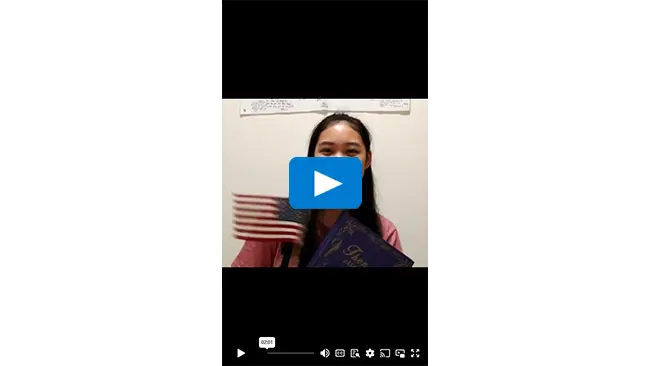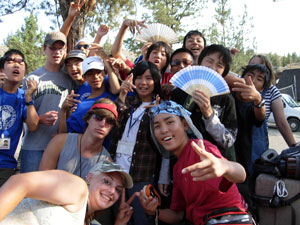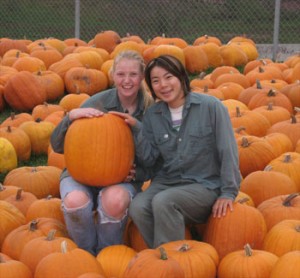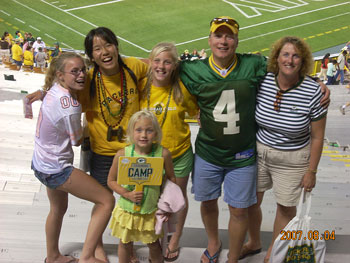HIGH SCHOOL PROGRAMS
-

Leaving My Worries Behind
Academic Year Program
Every year Labo sends Japanese high school students to live with a family and attend high school in the United States or Canada for a full academic year. This program is ideal for families looking for a more in-depth hosting experience.
- Program Highlights

- • The selection process in Japan includes a personal interview, group discussions in English, positive recommendations from Labo leaders and school officials, and a written essay.
- • Students take the ELTiS (English Language Test for International Students) exam to gauge their level of English proficiency. Although Japanese students are generally not as proficient in English as, for example, Europeans, the Labo students are determined to work hard to make up for their shortfalls.
- • A six-month orientation program includes meetings for students and their parents, a correspondence course in English, and a three-day national workshop presented by former exchange students, US and Canadian college students, and Labo staff members.
- • Before starting their homestays, students take part in an orientation program in their host country. These programs focus on intensive English practice, learning about local schools, and tips for how to have a safe and successful homestay.
- • During the year students look forward to participating in extra-curricular clubs, community activities, and family life.
- • Labo provides bi-lingual counselors to assist students and their host families. Counselors are native Japanese living in the US and Canada. They meet the students when they arrive, and during the year students are required to send their Counselor a `Monthly Report’. Counselors are available for phone consultations with students and host families.
 • Once during the year, students in a state, province, or region get together
• Once during the year, students in a state, province, or region get together
with their Counselor for a ‘Midterm Gathering’. These meetings allow students to share their experiences and express any concerns they may have.- • Monthly report forms are provided for students, host families and schools. These are sent to the Provincial or State Coordinator.
- • Students have complete medical insurance coverage.
- • Before returning to Japan, all Labo students meet for a two-day departure ‘KIKOKU program’ to share experiences, reflect on what they have learned, and see how their English has improved. They also have sessions on `reverse culture shock’ to prepare them for their return to Japanese society.
- How can We Become a Host Family?
- Hosting a Labo member can bring great rewards to your family. It could be the joy of adding a ‘son’ or ‘daughter’ to your family; having a Japanese language reference in your home; exposing your family and community to a new culture… or simply the pleasure of watching and guiding as a young person grows and develops into a responsible adult.
- • Host families are asked to host for the entire school year. In some cases, a student may stay with two families, as long as they live in the same school district.
- • Students must be accepted by the local school district before a host family can be confirmed. Host families may be asked to initiate discussions with
 their local school, but the Provincial or State Coordinator will follow up with information about the program.
their local school, but the Provincial or State Coordinator will follow up with information about the program. - • Host families do not need to have a child of the same age as the Labo member.
• It is fine for a Labo member to share a bedroom, as long as they have their own bed, dresser, and place to study. - • Local Coordinators personally interview potential host families to ensure an appropriate living environment for the Labo member. All members of the family should have a positive attitude towards hosting a Japanese student.
This program has a profound impact on the lives of the Japanese students as well as their host families. A number of Labo participants have returned to North America for higher education, and for many, their future career choices are heavily influenced by their year abroad.
Please contact the Labo Office for more information.